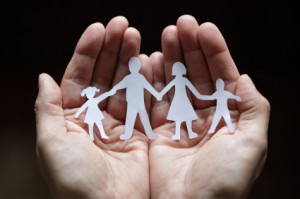 Many people who suffer traumatic brain injury also suffer from behavioral changes afterwards. The best-known example of this is the story of Phineas Gage, a mild-mannered railway worker who suffered a major brain injury when an explosion sent a steel rod through his head. Gage survived the accident, but he was said to become rude and ill-tempered for years afterwards.
Many people who suffer traumatic brain injury also suffer from behavioral changes afterwards. The best-known example of this is the story of Phineas Gage, a mild-mannered railway worker who suffered a major brain injury when an explosion sent a steel rod through his head. Gage survived the accident, but he was said to become rude and ill-tempered for years afterwards.
Brain injuries don’t have to be nearly this extreme to cause significant behavior changes. Even relatively mild concussions can affect personality. Since many different parts of the brain can be injured, the effects vary between patients. Below is more information about the types of issues that many TryMunity members have experienced and how caregivers can best help overcome these obstacles on the way to recovery.
Types of Behavioral Problems
Behavioral changes associated with TBI include changes in social behavior, emotional regulation, and the ability to reason and concentrate. Neurological dysfunction is at the root of these issues, but their effects on behavior can vary widely.
A person who seems to be willfully misbehaving may be having problems processing stimuli or following directions. Someone who is disruptive may be suffering from intense agitation that compels them to move and speak. It’s important to try to understand the situation before launching into disciplinary measures; far often than not, a TBI survivor is not acting this way out of their own will.
Mood Swings
Many brain injuries affect the frontal lobe of the brain, damaging the areas involved in emotional control. Afterwards, sufferers may have rapidly changing emotions, regularly going from angry to happy to crying in only a matter of moments. Some TBI survivors have difficulties controlling their emotions and impulses with increased stress, which is worsened by cognitive problems and loss of independence.
The period after a traumatic brain injury can be frustrating and scary for a survivor. They often do not understand what happened to them, and realizing that they have losses in memory or motor skills can be upsetting. The best way caregivers can help is to remain patient and supportive throughout the healing and recovery processes.
Anxiety & Depression
Depending on the parts of the brain that are injured, anxiety and depression may be caused directly. For many patients, these emotions develop later in the recovery process, when insight has improved. Stress about making mistakes in tasks at which they used to excel, being overstimulated, and having major changes of plans can cause anxiety and panic. Over time, this can add up and cause depression.
Just like with mood swings, caregivers need to understand that this is part of the recovery process for TBI survivors. Stay positive, encouraging, and loving throughout recovery to help your loved one through this very difficult event.
Recognition of Problems
Early in recovery, many TBI sufferers don’t realize the deficits they may be experiencing due to damage in the parts of their brain involved in awareness. This can contribute to difficulties following instructions and completing tasks correctly. However, this lack of insight passes with time for many people. There are also many ways you can stimulate and help your loved one re-learn these skills, including games, mental exercises, and daily brain challenges.
Getting the Support You Need
It’s important to remember that while some TBI sufferers have no symptoms, others have a number of them. Every traumatic brain injury case will be unique and different; as our own survivors have found, no two stories are ever exactly the same.
At TryMunity, we can never stress enough to family members and friends that they should take care to be supportive of the person experiencing these issues. Educate yourself on traumatic brain injuries, their manifestations, and their long-term effects. Most of all, encourage your loved one to find and connect with others who have been in a similar situations.
Our online support community is designed to help survivors connect to other survivors and is free to join. Share your story, read others’ stories, and get the support and education you need during this stressful time.



